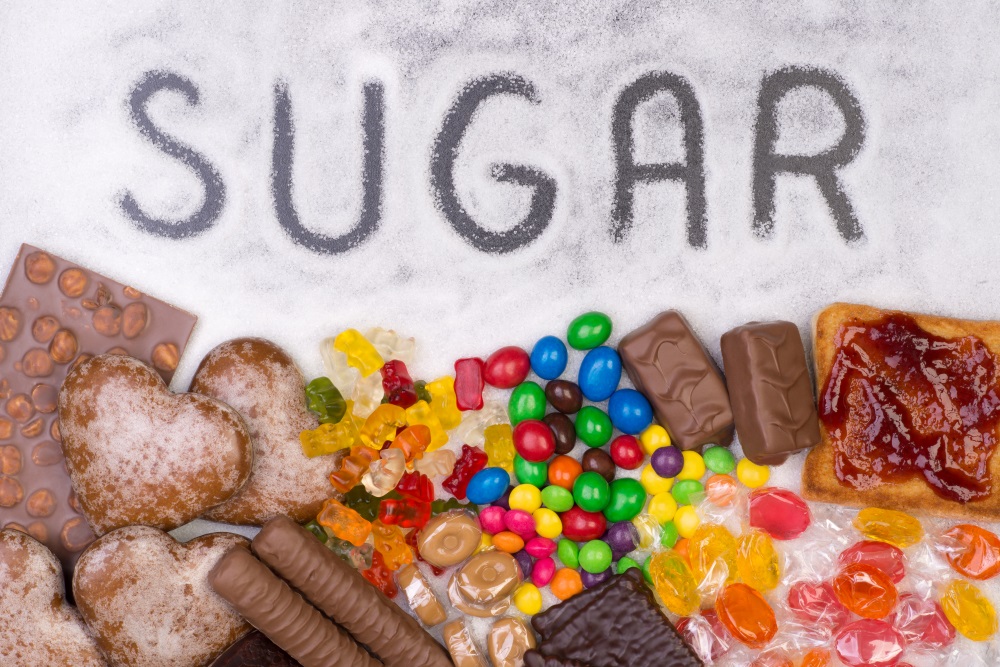Sugar Addiction? Is It Real?
When you hear about addiction, most of us think about substance abuse or alcoholism. However, addiction can come in many different forms and affect people of all ages and backgrounds.
For example, many teenagers are addicted to technology, and researchers have concluded they feel very real withdrawal symptoms when kept from their phone or game systems.
However, the one addiction that Americans suffer from more than any other else might surprise you. In fact, it’s nothing that will get you in trouble with the law and it’s not going to jack your phone bill up.
Shockingly, it’s something all of us have in our kitchen cabinet.
Interest piqued?
If you haven’t guessed, sugar is America’s most ubiquitous addiction. While at first it may seem less dangerous than a drug or alcohol addiction, the truth is that it causes bodily harm and drives up costs in our health care system every day due to the expensive health conditions that directly result from obesity.
If you think you may be one of the millions of Americans with a sugar addiction, keep reading to see what you can learn.
Are sugar addictions even real?
Just because it doesn’t involve an illegal drug and there hasn’t been a public awareness campaign around it doesn’t mean sugar addiction it isn’t a real and dangerous thing.
In fact, since it is such a common ingredient in everything from pasta sauce to fruit juice, most people assume it’s perfectly safe. It is important to remind you that your brain depends on glucose (another term for sugar) for immediate energy to keep it working properly. However, a sugar addiction causes you to eat or crave certain foods or overeat certain foods even when your brain has ample glucose, and with the sensation that you can’t stop or can’t resist.
But a sugar craving doesn’t mean that you want to snack on candy or sweets all day long. In fact, it’s actually a chemical reaction in your brain after the wiring’s been crossed (and the addition has formed). Several areas in your brain play a significant role in the crave sensation, to begin with. The hippocampus, located in your temporal lobe, is responsible for making short-term and long-term memories and plays a significant role in reward-seeking behavior.
Breaking the addiction means rewiring your brain, and you will have to anticipate withdrawal symptoms, because your brain will think it doesn’t have enough glucose to keep you going.
Could I have a sugar addiction?
If reading thus far has you questioning your own sugar intake, then answer the following questions to see if it might be worth a conversation with your doctor or nutritionist. Answer each question with: yes, sometimes, or no.
1. Do you have refined sugar (cookies, candies, etc.) at least every other day?
2. Do you feel better while indulging and then worse later on?
3. Do you have a hard time resisting desserts when they’re presented to you?
4. When you eat sugar does it make you want more?
5. Do you feel an impulse to eat sugar or do you hide how much you eat from family and friends?
6. Are you frequently tired?
If you answered yes to more than three of the above questions, you are considered at risk of a sugar addiction.
Can the addiction be broken?
The good news is that, yes, you can break the sugar addiction. However, just like all other addictions it is a challenge and will require hard work. Here’s where to start:
1. First, it’s important to recognize that a craving is not the same thing as feeling hunger. If you are hungry, reach for a protein-rich snack instead of a carb or sugar-laden treat.
2. Next, make sure you are avoiding stress and getting enough rest. (Both of these triggers can lead you make poor eating decisions.)
3. Finally, change your environment. If you have a sudden craving, get up and go do something different. Whether that’s going for a quick walk or simply changing your scenery, it will break up the monotony of the day and help prevent you from falling back into habits of just reaching for a sugary snack to pass the time.
Sugar addiction can be harmful not only to internal bodily systems but to your teeth as well. If you have been suffering from sugar addiction and haven’t seen a dentist in a while, give Dr. Ku a call today for a preventive exam. Dr. Ku has been rated the number one dentist in Fort Worth by the Fort Worth Star Telegram for a second year in a row, and he’s here to help you rejuvenate as you break your sugar addiction!






